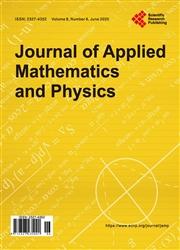Quantum Codes Do Not Increase Fidelity against Isotropic Errors
引用次数: 0
Abstract
Given an $m-$qubit $\Phi_0$ and an $(n,m)-$quantum code $\mathcal{C}$, let $\Phi$ be the $n-$qubit that results from the $\mathcal{C}-$encoding of $\Phi_0$. Suppose that the state $\Phi$ is affected by an isotropic error (decoherence), becoming $\Psi$, and that the corrector circuit of $\mathcal{C}$ is applied to $\Psi$, obtaining the quantum state $\tilde\Phi$. Alternatively, we analyze the effect of the isotropic error without using the quantum code $\mathcal{C}$. In this case the error transforms $\Phi_0$ into $\Psi_0$. Assuming that the correction circuit does not introduce new errors and that it does not increase the execution time, we compare the fidelity of $\Psi$, $\tilde\Phi$ and $\Psi_0$ with the aim of analyzing the power of quantum codes to control isotropic errors. We prove that $F(\Psi_0) \geq F(\tilde\Phi) \geq F(\Psi)$. Therefore the best option to optimize fidelity against isotropic errors is not to use quantum codes.量子码不能提高各向同性误差的保真度
给定一个$m-$量子比特$\Phi_0$和一个$(n,m)-$量子代码$\mathcal{C}$,设$\Phi$为$\Phi_0$编码的$\mathcal{C}-$产生的$n-$量子比特。假设状态$\Phi$受到各向同性误差(退相干)的影响,变成$\Psi$,将$\mathcal{C}$的校正电路应用于$\Psi$,得到量子态$\tilde\Phi$。或者,我们在不使用量子码$\mathcal{C}$的情况下分析各向同性误差的影响。在本例中,错误将$\Phi_0$转换为$\Psi_0$。假设校正电路不引入新的误差和不增加执行时间,我们比较了$\Psi$、$\tilde\Phi$和$\Psi_0$的保真度,目的是分析量子码控制各向同性误差的能力。我们证明$F(\Psi_0) \geq F(\tilde\Phi) \geq F(\Psi)$。因此,针对各向同性误差优化保真度的最佳选择是不使用量子编码。
本文章由计算机程序翻译,如有差异,请以英文原文为准。
求助全文
约1分钟内获得全文
求助全文

 求助内容:
求助内容: 应助结果提醒方式:
应助结果提醒方式:


